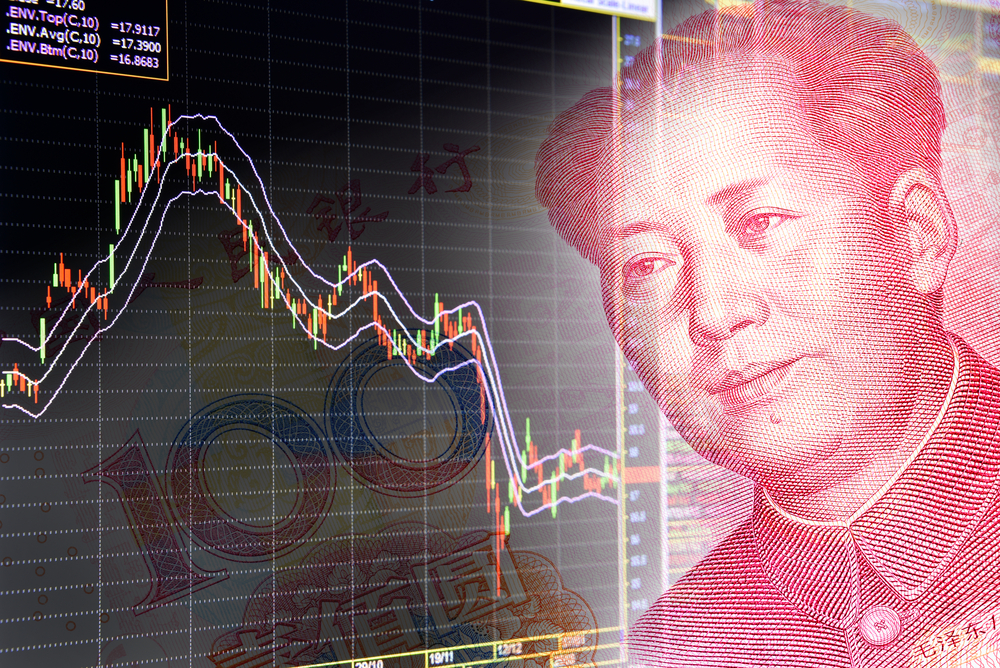
CHARLESTON, S.C. — If there was ever a week for the Republican presidential candidates to talk tough on China, this was it. Spurred by the stock market’s wild ride, they lashed out at the world’s most populous nation.
Wisconsin’s Scott Walker demanded that President Barack Obama cancel an upcoming state visit with Chinese President Xi Jinping. Mike Huckabee said the next president should “build America’s economy, not China’s or Mexico’s.” Donald Trump said the U.S. economy needs to “do a big uncoupling pretty soon, before it’s too late.”
It’s rhetoric that doesn’t always square with the realities of the relationship between the world’s two largest economies, said experts on America’s ties with China, even if it does make for nifty campaign sound bites.
“When you’re in the early phases of the primary season, and you don’t have a lot in the way of foreign policy bona fides, a surefire applause line is to go to the extreme — and in the case of China that’s always a very easy thing to do,” said Jon Huntsman, a former Republican governor of Utah and U.S. ambassador to China under Obama.
No candidate went further than Trump, whose pledge to bring back to the U.S. the roughly 2 million jobs lost to China since 1999 is a centerpiece of his campaign. “Not only now have they taken our jobs … but now they are pulling us down with them,” he said Monday amid a worldwide swoon in stock prices.
But “uncoupling” the U.S. from China as Trump proposes would mean undoing the largest trade relationship in the world: $592 billion in goods and services were exchanged last year. While most of that consists of U.S. imports of Chinese products, China is still the United States’ third-largest export market.
General Motors has sold more cars in China than in the U.S. every year since 2010. Apple’s second-largest market for its iPhones, iPads and computers is China. Said Apple CEO Tim Cook this week, “I get updates on our performance in China every day.”
“It would basically be economic suicide to cut yourself off from the second-largest and fastest-growing economy in the world,” said Nicholas Lardy, a senior fellow at the Peterson Institute for International Economics.
Walker said Obama needs to have some “backbone” and call off the planned visit of China’s Xi next month — a response, he said, to China’s “increasing attempts to undermine U.S. interests.”
But the Wisconsin governor didn’t say how he would settle issues between the nations without such face-to-face meetings. Bonnie Glaser, a China expert at the non-partisan Center for Strategic and International Studies, called Walker’s idea “the nuclear option” of diplomacy.
“You can’t just close the door and take your toys and go home,” she said. “That’s not the way that effective international policy is made.”
Glaser said the U.S.-China relationship is best managed by meetings between the chief executives of the two nations, due in no small part to the immense power Xi wields in Beijing.
“If we can persuade Xi Jinping to do something, it will happen,” she said. “That’s actually quite different from a democratic country.”
Florida Sen. Marco Rubio didn’t go as far as Walker, arguing instead to downgrade Xi’s upcoming trip to a “working visit” — keeping the face-to-face meetings, but scrapping the public pomp and circumstance.
“This is an opportunity to speak bluntly to this authoritarian ruler and achieve meaningful progress,” Rubio said Friday in a speech outlining his proposed approach to the U.S.-China relationship. He called for bolstering the American military presence in the Pacific, pushing for more free trade and holding the Chinese government accountable on human rights.
The Republicans running in 2016, if successful in winning the White House, won’t be the first to talk tough on China only to face the realities of the relationship once in the Oval Office. It’s something Democrats have done, too.
Peter Feaver, a former National Security Council aide to both President George W. Bush and President Bill Clinton, recalled Clinton in 1992 calling the Chinese government “the butchers of Beijing” — a reference to the crackdown on student protesters in Tiananmen Square. By the end of his first term, Clinton had bestowed “most-favored-nation” status on China, further cementing the two nations’ trade relationship.
Glaser said the GOP candidates likely will persist with tough talk on China, because there is no political incentive to do otherwise. Labor unions dislike many international trade deals. American businesses are increasingly disenchanted with China’s own protectionist policies. Non-governmental organizations decry its human rights record.
Huntsman said that when he addressed China in serious terms on the campaign trail while running for the Republican nomination in 2012, “it was a huge negative.” Bashing China is a predictable way to win applause, he said.
“But once you get through the primaries, it doesn’t leave you with anything. In fact you are in a hole,” Huntsman said. “We ought to start from the beginning talking reality, in ways the American people can understand how truly great the stakes are.”
Associated Press writers Jill Colvin in Newark, New Jersey, Thomas Beaumont in Des Moines, Iowa, Sergio Bustos in Miami, Florida, and Chris Rugaber and Matthew Pennington in Washington contributed to this report.